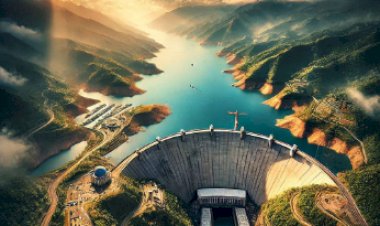Mastering DSLR Photography: Tips, Techniques and Tricks
If you want to take your photography to the next level, then mastering DSLR photography is a must. In this blog post, we'll provide you with tips, techniques, and tricks to help you create stunning images. From understanding your camera settings to perfecting your composition, we've got you covered. Start your journey to becoming a pro photographer today!
Are you looking to take your photography skills to the next level and master the art of DSLR photography? Whether you're a beginner or an experienced photographer, there are always new techniques and tricks to learn to create stunning images. In this blog post, we'll provide you with tips, techniques, and tricks to help you improve your DSLR photography skills and create images that will leave a lasting impression.
-
Understanding Your Camera Settings One of the most important aspects of mastering DSLR photography is understanding your camera settings. Take the time to read your camera's manual and experiment with different settings to see what works best for you. Some of the most important settings to master include ISO, shutter speed, and aperture.
-
Using the Rule of Thirds The Rule of Thirds is a composition technique that can help you create more dynamic and visually interesting images. The idea is to divide your frame into thirds both horizontally and vertically, and then place your subject along these lines or at their intersections. This can help create a more balanced and pleasing composition.
-
Experimenting with Depth of Field Depth of field refers to the area of your image that is in focus. Experimenting with depth of field can help you create different moods and effects in your images. For example, a shallow depth of field can create a soft and dreamy effect, while a deep depth of field can create a sharp and detailed image.
-
Mastering Composition Composition is the arrangement of elements in your image, and it plays a crucial role in creating visually appealing photos. Experiment with different compositions, such as leading lines, symmetry, and framing, to create dynamic and interesting images.
-
Practicing with Different Lighting Lighting is one of the most important elements of photography, and understanding how to use it to your advantage is crucial. Experiment with different lighting situations, such as natural light, artificial light, and low light, to see how it affects your images.
-
Post-Processing Your Images Post-processing is the process of editing your images after they have been taken. This can include adjusting exposure, contrast, and color, as well as cropping and retouching. Take the time to learn the basics of post-processing to enhance your images and bring out their full potential.
In conclusion, mastering DSLR photography takes time and practice, but with the right tips, techniques, and tricks, you can take your photography skills to the next level. Experiment with different settings, compositions, lighting, and post-processing techniques to create stunning images that leave a lasting impression. Keep learning and pushing yourself, and you'll be well on your way to becoming a pro photographer.

 Ashish Kumar
Ashish Kumar 













